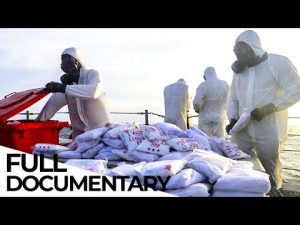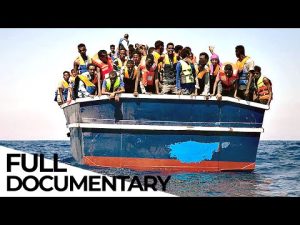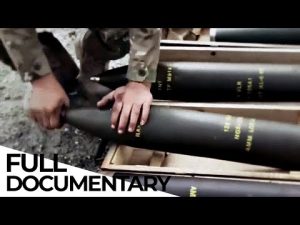Unholy Mix Of Religion, Conspiracy Theories, And Politics Keep Southern Thailand Hot

Despite the ousting of the government of Thailand’s Prime Minister Thaksin Shinawatra and his Thai Rak Thai Party (TRT) in a coup last September and the stepped up reconciliation efforts of the new government in Bangkok under Surayudh Chulanont, the killings and attacks engulfing Thailand’s southern border region, home to over a million Malay-speaking Thai Muslims, show little sign of abating.
Two recently published East-West Center studies concur and point out that identifying the causes of the unrest, let alone finding a solution, is not a simple task.
Marc Askew is an associate professor at Victoria University’s School of Social Sciences in Melbourne, Australia, and his study (Policy Studies 29 / Conspiracy, Politics, and a Disorderly Border: The Struggle to Comprehend Insurgency in Thailand’s Deep South) published by East-West Center Washington is important as it is not only based on first-hand field work but also makes extensive use of Thai language source material as well as intelligence documents and interviews conducted in Thailand.
Askew notes, “Finding the causes and culprits of the ongoing violence in Thailand’s Muslim-majority south is a highly politicized process.” A process he points out that has been made all the more difficult over the past three years by the “confrontations generated by (ousted Prime Minister) Thaksin Shinawatra’s controversial mode of governance and policymaking.”
Askew says, “It is clear that Thaksin’s attempts to restructure the state from 2001 to 2004 … (and) extrajudicial kidnappings and murders under Thaksin’s aegis clearly played a role in alienating southern Muslims.” But he adds, “The panic and fear surrounding um kha (abduction and murder) has also been spread effectively by a militant network that employs rumor as a strategic weapon.”
“Branding Thaksin as a key culprit in sparking the current ‘fire in the south,’ though partly valid,” Askew says, “is also oversimplified.”
He notes that in 2004 and 2005, the largely-southern based opposition Democrat Party (DP) “bereft of policies with which to counter Thaksin’s populism, managed to retain its electoral heartland via a campaign that demonized Thaksin as a cause of the southern unrest, conveniently downplaying the DP’s own incapacity when in government to fully address the complex dynamics that keep the borderland volatile and vulnerable.”
Conspiracies, dirty politics, and common criminality, not only along the border but also in Bangkok, certainly are major factors in Askew’s view of the disorder.
“Efforts to comprehend the dynamics of the current violence have been informed by narratives of conspiracy,” Askew points out. “Though some of these theories are outlandish, their plausibility … derives from knowledge of the well-established and complex ways that power has been deployed in the borderland by overlapping interest groups (including politicians at all levels) and underworld networks.”
Askew notes that it is “significant that Muslim critics in the south who opposed Thaksin’s policies also argue that entrenched DP-based interest groups have been a key element in weakening the region.” Although as Askew points out, “They conveniently exclude Wadah politicians (influential Muslim politicians in the south) and their networks from the equation.”
Askew notes “a number of former military and intelligence officers emphasized that the southern violence emerged and persisted because of the inability and unwillingness of successive (national) governments to address a disorderly state that has rendered the borderland vulnerable through pervasive corruption, predation, and competition.”
According to Askew, a senior Muslim police commander in Pattani, one of the three violence-torn southern provinces, says “the borderland has been manipulated and abandoned … the border provinces have for too long been a dua prolong (testing ground, or playing field of competition) for rival political and interest groups.”
Not surprisingly, the long-standing situation has made it easy, according to Askew, “for insurgent groups to exploit the already low popular-trust thresholds and succeed in implicating officials (both local and in Bangkok) as the perpetrators of attacks.” This is despite the fact, Askew says, “that Muslim separatist groups and leaders have long functioned as another vested interest group … drawing material sustenance and advantage from instability and conflict.”
That attitude allows the conflict to be painted as a “binary portrait … such as ‘hegemonic Buddhist State vs. Oppressed Muslim Borderland’,” according to Askew. An attitude that, he says, “casts blame on a Thai Buddhist ruling apparatus rather than acknowledging a problem of corruption/criminality that crosses ethno-religious boundaries.”
Imtiyaz Yusuf, head of the department of religion at Bangkok’s Assumption University’s Graduate School of Philosophy and Religion, addresses the religious and ethnic aspects of the problems in southern Thailand, too. Although in his view religion and ethnicity have been given short shrift.
In a recent study, published by East-West Center Washington (Working Papers No. 7, Faces of Islam in Southern Thailand), Yusuf notes that most commentators and analysts neglect “the role of religion and ethnicity in the crisis.” He says, “The phenomenon of ethnification of religion is very much evident in Southeast Asia where religions function along ethnic lines.” He points out, “Here a Malay is a Muslim, a Siamese/Thai a Buddhist and a Chinese either a Christian or Tao/Buddhist syncretic … ethno-religious constructs shape identities.”
Yusuf is quick to point out this characterization is not set in law. While Thailand has a Buddhist majority population of 94 percent, he notes “the Thai constitution does not declare Buddhism as the official religion … and the Thai king is held as the patron of all religions.” But, he adds, Thai identity revolves around concepts of Chat, Sassana, and Pramahakasat or Nation, Religion (Buddhism) and the Monarchy. The unassimilated southern Muslims contest this concept. They maintain the identity reference should be pluralistic in spirit, it should include all religions not only Buddhism.
Yusuf says to the southern Muslims “traditionally, ethnicity, language, and religion have served as important determinants of identity … to be a Malay means to be Muslim only, just as being a Thai means being Buddhist.” They do not buy into the concept that the modern definition of the terms Malay and Thai include “religiously pluralistic identifications in terms of being identified as citizens of modern states of Thailand and Malaysia.”
Distinctive political cultures that bring their own cultural understandings of power, politics, and religion in an interconnected relationship do not make a solution to the problems in southern Thailand any simpler.
“The Thai state today,” Yusuf points out, “demands equal loyalty from all its citizens irrespective of their ethnic or religious affiliations, be they Chinese or Malay Muslims.” What this means is that Thai Muslims have to “reinterpret their Malay-Muslim political philosophy so that they can adjust to the political loyalty demands of a modernized Thai state.”
That may be easier said than done.
Yusuf says the conflict in southern Thailand “has to be understood in a cosmological and ethno-cultural context which needs more than mere political and security response to solve it.”
What both recent studies make very clear is that citing simple solutions to the ongoing conflict in southern Thailand will only add to the complexity of the problem.








